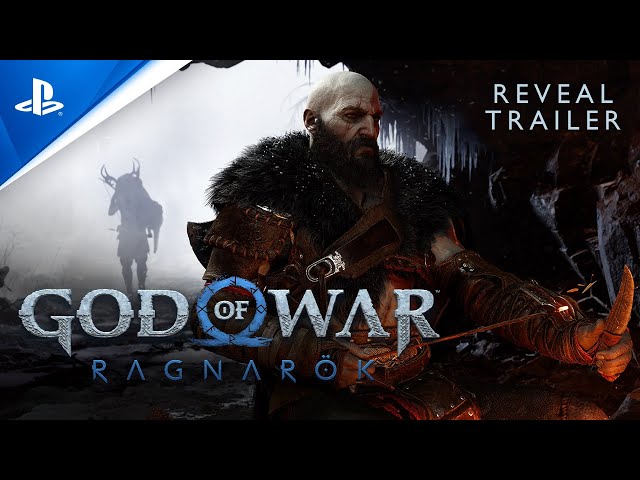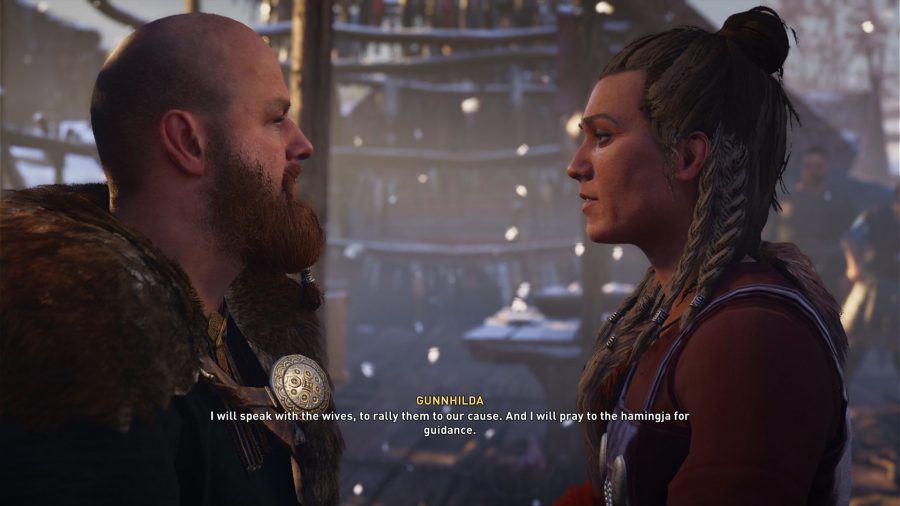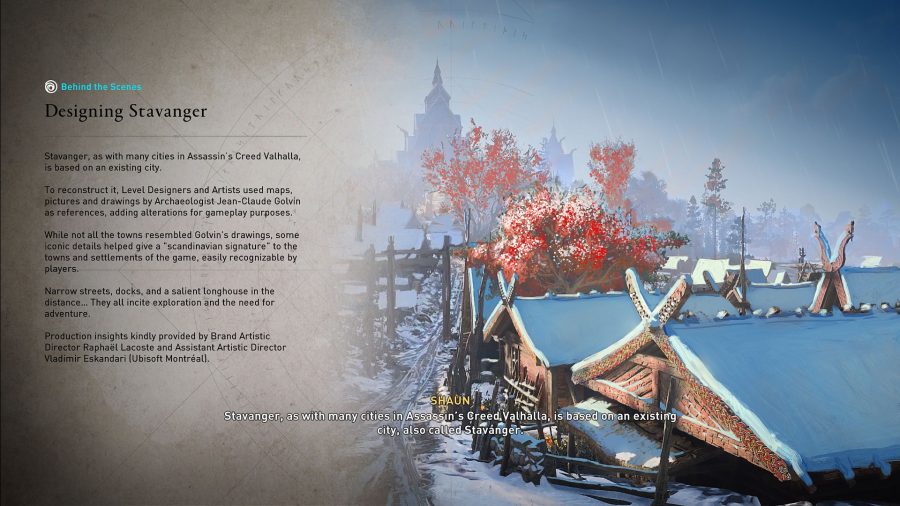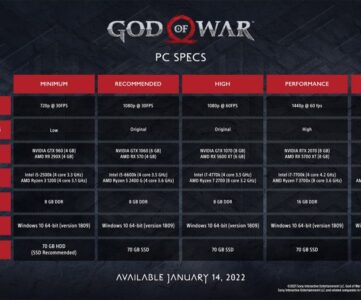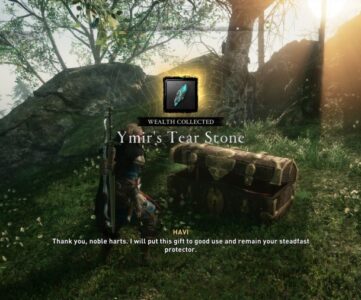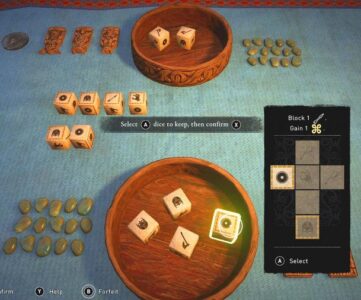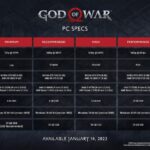[ad_1]
It’s been an exciting time for fans of gaming’s angry dads. God of War, once a staple of Sony’s first-party exclusives, was recently confirmed to debut on PC in January with its excellent 2018 reboot. Sony’s showcase in September also showed some of the upcoming sequel, God of War: Ragnarok, and coincided with a tweet from art director Raf Grassetti showing its take on the Norse god Thor.
That character art is badass, but sadly, there were some who didn’t know it. At risk of oversimplifying – a risk I’m willing to take because the outcry wasn’t particularly sophisticated – many seemed to take issue with Thor being, essentially, fat. This is not only mean-spirited but incorrect. In the mythology, Thor is the most physically strong of all the gods and loves his ale so much that, in a drinking contest rigged by those cheating Frost Giants, he drank enough of the literal ocean to create the tides. In another tale from the Poetic Edda, while disguised as the goddess Freyja at a wedding reception, he eats entire animals and drinks whole barrels of mead. I guarantee you that Chris Hemsworth’s diet for the MCU is nothing like that.
The ‘authentic’ Thor is basically the legendary prop forward from your local rugby club who once put away twenty pints and headbutted a goat into a coma crossed with champion strongmen like his Icelandic namesake Hafþór Júlíus Björnsson. Image-search ‘world’s strongest man‘ and you’ll find many physiques that’ll remind you of the character art below.
And yes, it may seem odd to quibble over authenticity when discussing mythical characters, but that’s what the naysayers are doing when they say that Thor shouldn’t be fat. They’re invoking an authority to make this claim, and whether it’s the MCU depiction or something else, whichever ‘authority’ would object to God of War’s Thor is nothing of the kind.
My boy! pic.twitter.com/5hPocTewBJ
— Raf Grassetti (@rafagrassetti) September 9, 2021
This matters, because mythology matters. These are our ur-stories, the foundations of human culture, the tales our ancestors told to give their lives structure and purpose and explanation. I’m all for alternative takes, but attempting to invalidate one by reference to another makes no sense. And when you’re quibbling with a depiction that hews more closely to the only true, undergirding authority on the matter, it’s downright disrespectful.
To put the kindest possible spin on the backlash, the problem may simply be one of ignorance, which got us thinking: what if God of War had an edu-tainment mode, like Assassin’s Creed’s Discovery Tours?
Not exactly like Assassin’s Creed, of course. The AC tours are based on those games’ open worlds and walk players through the history of their societies, backed by written records, artifacts, and the advice of expert historians who are trying to discover the truth of something that happened. God of War lives in mythology, not history – but that doesn’t mean it’s any less important to teach, and it’s clear that Sony Santa Monica shares the same reverence for its source material as Ubisoft does for Assassin’s Creed’s.
That said, it’s worth acknowledging that God of War, as a series, has always justified protagonist Kratos’s wholesale slaughter of entire pantheons by taking a very dim view of them. That doesn’t necessarily equate to an inauthentic account of the mythology, just a selective one; there’s plenty of material to justify such a view, after all, as the gods of Greek and – perhaps to a lesser extent – Norse mythology did a lot of awful things.
Zeus cheated constantly on his wife Hera, shapeshifting to deceive and rape countless other women. Whether they were willing or not didn’t matter to Hera, who out of spite and jealous vengeance would turn them into monsters, and even go after the equally innocent children of such liaisons. Thor himself had a horrible temper and though he was revered as a protector of humanity, it’s easy to view that protection as merely a byproduct of his bloodthirsty fondness for killing giants. Ares, who represented the frenzy of battle in contrast to his strategic sister Athena, was an even more barbarous war god with little love among his own people, being frequently ridiculed in Greek myth.
I could go on, but you get the point: Norse and Greek gods were as arbitrary and mercurial as the natural phenomena over which they were said to have power; as vindictive and prideful as the cast of any soap opera; as messy and dramatic as any dysfunctional family, because they were all these things to their worshippers. They were complicated, and their worshippers took an appropriately mixed view of them rather than see them as wholly benevolent.
A Discovery Tour in God of War could be the perfect vehicle for communicating this kind of nuance, the role that mythology played in the societies that bore it, as well as the original myths themselves. Similarly to Assassin’s Creed, the developers could make clear when they’ve taken some licence with the source material. And yes, I know Discovery Tour: Viking Age has a mythological section, but Assassin’s Creed Valhalla’s jaunts to Asgard and Jotunheim are a sideshow, whereas God of War 2018 is entirely steeped in myth and thus can go much deeper.
Because the subject matter is mythology, the absence of a meticulously realised open world like that of Valhalla needn’t be an issue; God of War 2018’s gorgeous and stylised hub-and-spoke world will do just fine. Depending on the investment Sony Santa Monica might be willing to make, original quest lines with new voice work and animations – similar to those introduced in Discovery Tour: Viking Age – could lead us around a new, discovery-oriented adventure in this world.
The developers could cast us as Atreus, and set us on a quest to learn about the Nine Realms from which he has been so sheltered. His inquisitiveness, demonstrated through the codex he keeps, is perfectly suited to this. Monsters could be made non-hostile and rearranged for discovery rather than combat; we could interact with them to unlock more detailed versions of Atreus’s bestiary entries discussing their origins in the mythology. We could explore the Nine Realms freely, discovering developer notes about their interpretation of Muspelheim, Helheim, and so on. We could encounter characters from the mythology, such as the dwarves Eitri/Sindri and Brokkr, or the beheaded god Mimir, and hear from their own lips about their original relationships with the gods, without the embellishments of the games.
Related: Check out the best RPG games on PC
Mythology is fundamental to understanding humanity, perhaps as much as history is, and it’s similarly subject to interpretation and ignorance. Although Sony Santa Monica has taken its own spin on God of War’s subject matter, it’s a well-researched and appropriately reverent one. This positions God of War well to use the interactivity of videogames as a teaching tool in the same way that Assassin’s Creed has. Santa Monica will clearly need to find its own version of it, but an edu-tainment mode in God of War, whether Ragnarok or retroactively in the 2018 reboot, would be a beautiful thing to see – and hopefully make for fewer embarrassing tantrums like the one that greeted Thor’s reveal.
[ad_1]

